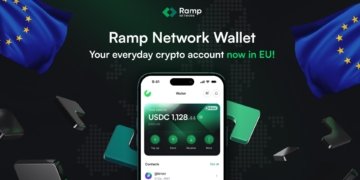
Exploring South Korea’s Digital Frontier with Web3 Gaming Developments
South Korea is renowned not only for its rapid technological advancement but also for its vibrant gaming industry. Recently, the fusion of Web3 technology with gaming is creating a new digital landscape, positioning South Korea at the forefront of this revolutionary change. In this article, we delve into the burgeoning world of Web3 gaming developments in South Korea, underscoring how this technology is shaping the future of digital entertainment.
Understanding Web3 and Its Impact on Gaming
Web3 represents the next evolution of the internet, characterized by decentralized platforms, blockchain technology, and increased user empowerment. In the context of gaming, Web3 offers a plethora of opportunities such as:
- Enhanced security and transparency: By utilizing blockchain, gaming transactions become more secure and transparent, effectively reducing fraud and cheating.
- User ownership and monetization: Players can truly own their in-game assets, which can be traded or sold independently of the game’s ecosystem.
- Interoperability: Gamers can use their assets across multiple platforms and games, unlocking a new level of interconnectivity.
South Korea’s Role in Web3 Gaming
As a global hub for gaming, South Korea is uniquely positioned to capitalize on the Web3 revolution. The nation’s vibrant eSports scene, coupled with a high penetration of internet and mobile technology, provides a fertile ground for Web3 gaming advancements. Here are some key developments that showcase South Korea’s involvement in this new digital frontier:
Leading Gaming Companies Embracing Web3
Several South Korean gaming giants are now integrating Web3 technologies into their platforms:
- NCSOFT: Known for its popular MMORPGs, NCSOFT is exploring blockchain applications to offer better value and engagement for its players.
- Netmarble: This major player in mobile gaming has taken steps towards incorporating blockchain to provide a decentralized gaming experience.
- Kakao Games: By leveraging its own blockchain platform, Klaytn, Kakao Games aims to introduce decentralized gaming to a broader audience.
The Rise of Play-to-Earn (P2E) Models
The Play-to-Earn (P2E) model has gained significant traction in South Korea, where players can earn cryptocurrency or other digital assets through gameplay. This model not only incentivizes user engagement but also introduces a new economic dimension to gaming. Here’s how South Korea is leading the P2E charge:
- Innovative Game Designs: South Korean developers are crafting compelling narratives and game mechanics that center around player participation and rewards.
- Increased Investment: There has been a surge in investment for P2E projects, showing a strong belief in the economic viability of these models.
- Community Building: P2E games are also fostering strong gaming communities, leading to better user retention and collaboration.
Challenges and Opportunities
While the adoption of Web3 technologies in gaming presents immense opportunities, it is not without challenges. These include:
Regulatory Hurdles
Regulation remains a looming challenge as governments, including South Korea’s, navigate how to handle cryptocurrencies and blockchain. Ensuring compliance while fostering innovation is a delicate balance that must be maintained. Developers and investors alike must remain agile and informed about regulatory changes to continue thriving in this space.
Technological and Adoption Barriers
Blockchain technology is still in its relative infancy, leading to adoption barriers:
- Scalability Issues: Current blockchain platforms often struggle to handle high-speed transactions required by popular games.
- User Experience Concerns: While blockchain offers numerous benefits, the user experience must improve to attract mainstream gamers.
Nonetheless, these challenges also create opportunities for innovation:
- Improved Blockchains: South Korean developers are at the forefront of creating more scalable and user-friendly blockchain platforms.
- User Education: Companies are investing in educating their user base, ensuring gamers understand the benefits and usage of Web3 technologies.
The Future of Web3 Gaming in South Korea
As South Korea embraces Web3 in gaming, the future looks promising. This digital transformation is set to disrupt traditional gaming paradigms and offer unprecedented user experiences. The focus will likely be on enhancing current technologies, overcoming regulatory challenges, and mainstreaming adoption.
With a committed gaming community, forward-thinking developers, and an environment ripe for innovation, South Korea’s journey into Web3 gaming represents a digital revolution that could redefine the global gaming landscape.
Conclusion
South Korea is at the cutting edge of Web3 gaming advancements. From embracing the P2E model to integrating blockchain in traditional gaming frameworks, South Korea is setting a precedent for the future of gaming worldwide. As technology continues to evolve, the nation is poised to lead this new frontier, pushing the boundaries of what’s possible in digital entertainment.
“`
This SEO-optimized article captures the excitement and potential surrounding Web3 developments in South Korean gaming, making it informative and engaging for readers interested in this innovative field.











